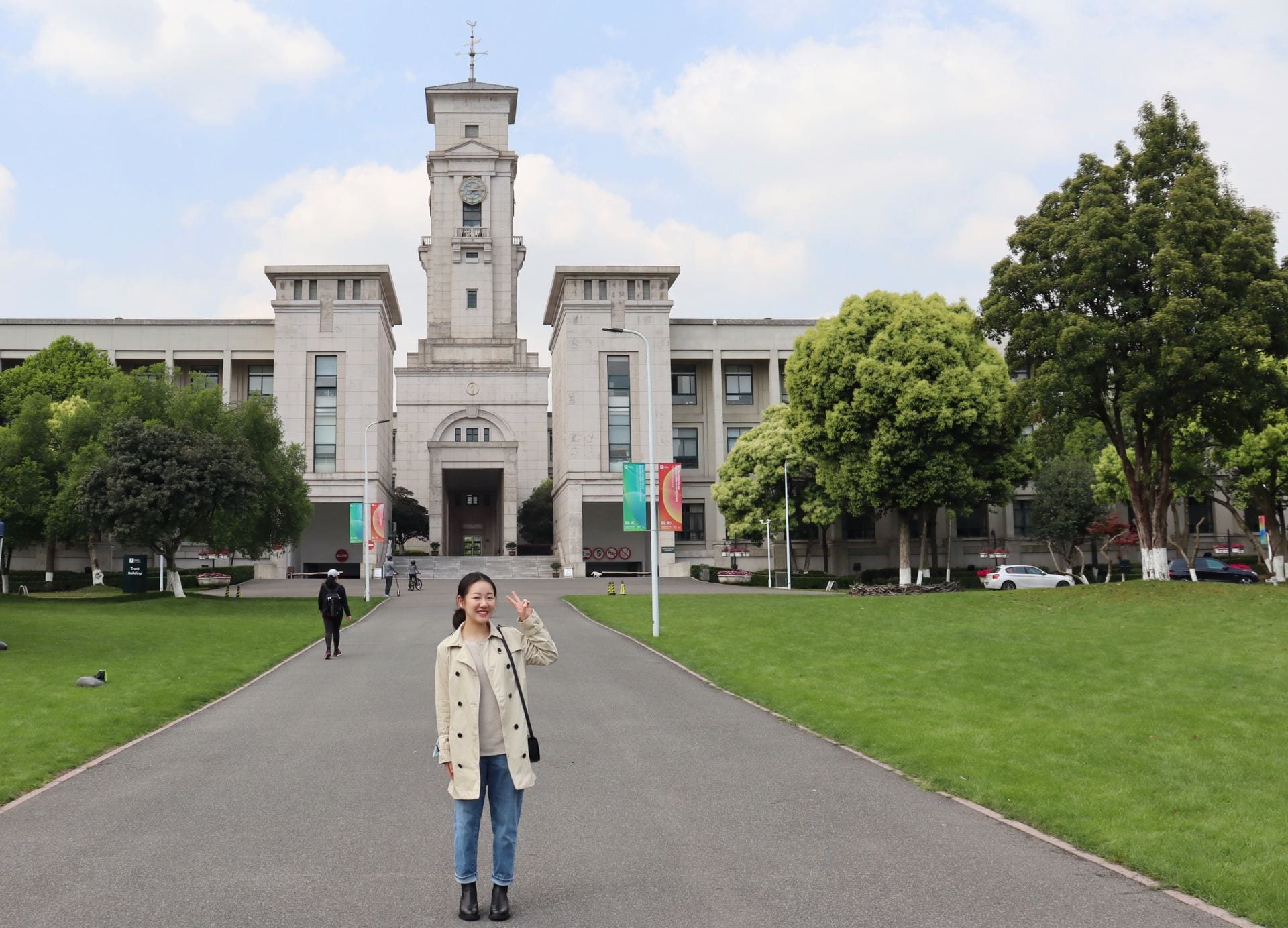
Lilly’s Postcard from Ningbo
Lilly Ying is a Bachelor of Arts student majoring in Media & Communications and Screen & Cultural Studies and what better destination to explore these disciplines than China. Lilly spent one semester on exchange at the University of Nottingham, Ningbo Campus and shares her insights with us.
Why did you choose the institution and location of your overseas program?
The main reason why I chose China as the location for my overseas program is because I had not yet experienced a university in China as a Chinese student. I wanted to discover the differences between university life in Melbourne and China. I am from Ningbo and remember visiting the University of Nottingham Ningbo when I was a child with my parents. So, I really wanted to study here as I remembered it being so big and beautiful with wonderful buildings.

What was your experience when you first studied at the University of Nottingham Ningbo? Was this different to what you expected?
I have to say the biggest and unexpected difference was COVID-19 which had a dramatic impact on my study plans. Originally, I was supposed to only study one semester at the University of Nottingham Ningbo, but I ended up doing a year-long program so I could keep studying on campus. I really enjoyed these on campus experiences and using the library facilities.

What actions did you take to make sure you maximised the opportunities your study program offered you?
I usually went to the “office hour” at the University of Nottingham Ningbo, which is when students can go to the academic’s office to ask questions and get assistance. This face-face learning was really helpful especially during the final exam period. Academically, the University of Nottingham Ningbo provides every student with their personal tutor for extra guidance. There are two meetings per semester with the tutor face to face which made me feel very connected to the university. My personal tutor was a Spanish teacher who introduced me to some Spanish language basics such as how to pronounce “Español” and “paella”. The personal tutor is there to help the student, from deadlines to providing advice on assessments and grading at the university.
What was your biggest culture shock moment?
I didn’t really experience culture shock because I feel very familiar and comfortable with the city itself. But there are some differences between the universities such as essay and writing styles. Also, students at the University of Nottingham Ningbo must learn a third language aside from Chinese and English. I befriended new classmates during the exchange, some of them chose Japanese, some chose Spanish, some chose Korean, and some French. This requirement is quite good because it pushes you to learn another language and get familiar with different and interesting cultures.
What was the highlight of your overseas program?
As there are differences between the university subject levels at Melbourne and Nottingham Ningbo, I decided to take classes at a higher level while in China. Taking these subjects at a higher level was very difficult as their assessments had a higher word count and involved primary research. Yet, after completing these subjects I felt very happy and proud that I was able to actually pass these difficult subjects.
I also did an an internship during the exchange at a local newspaper publication. In the beginning, I was nervous about the interview process. My first interviewee was a CEO from a cinema company, and we discussed their preparations to re-open the cinema after COVID-19 lockdowns. After the internship, I published articles and I feel more relaxed about interviewing other people, which is really beneficial.
What is the one piece of advice or tip you wish you had known before you went on your overseas program?
I wish I knew the difference between bachelor year levels and how the Level 3 subject codes at the University of Nottingham Ningbo start with 4. If I had realised this earlier, I might have chosen some more suitable subjects.
Do you have anything else you would like to share about your experience?
While my academic studies were important during the exchange, I also appreciated the friends I made. As most of the students at UNNC were also Chinese, it was also easier to communicate and make friends. UNNC also has four student canteens, as most students mostly live on campus. As such, the canteens offer a more diverse choice for food which is really good.
What would you recommend to other students who exchange to city Ningbo as a local?
A major tourist attraction in Ningbo is the oldest existing library in China, which was founded in 1561 during the Ming dynasty. This library collects over 70,000 antique books which is a really good place to learn more about the history. There is also the Port of Ningbo-Zhoushan which is the busiest in the world for cargo tonnage and has a rich history as well. There is also Dongqian Hu which is a freshwater lake where many people ride their bikes and enjoy nature. Other parks such as Yue Hu and Ri Hu also have very good views. The university is also located close to plazas such as Wanda Guangchang where you can buy food and shop. I also recommend students try traditional Ningbo breakfasts in the old streets. These stores may look old and small but are definitely worth trying!
